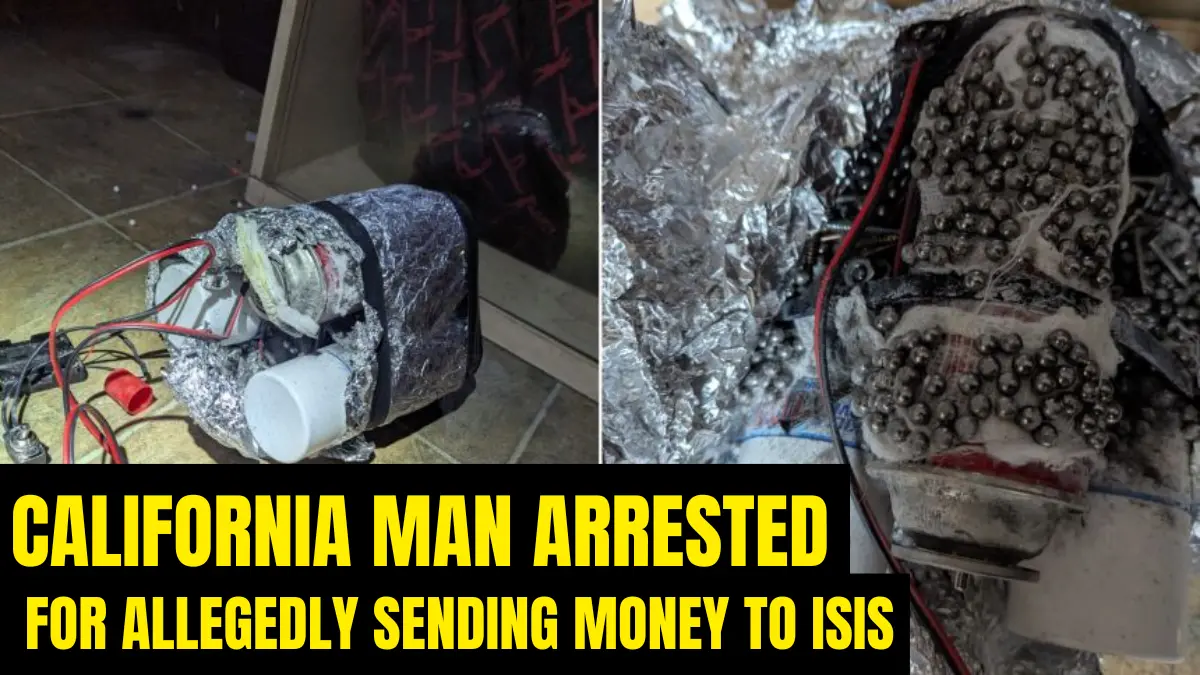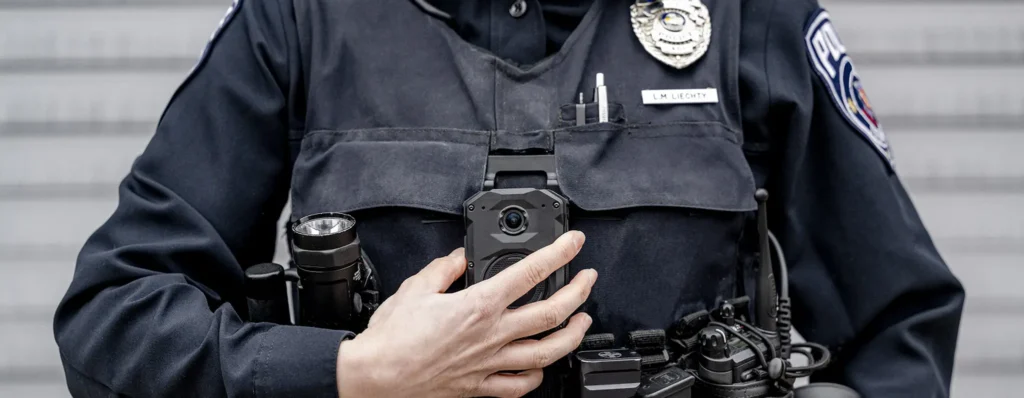A Long Beach man was arrested for allegedly sending over $1,600 to ISIS operatives and expressing a desire to join the terror group. FBI agents recovered a potential bomb from his bedroom.
Table of Contents
California Man Arrested for Allegedly Sending Money to ISIS
In a high-stakes counterterrorism operation, the FBI arrested a 28-year-old California man who allegedly provided financial support to ISIS and pledged allegiance to the group online. The arrest, which took place in Long Beach, has raised national security concerns and put a spotlight back on the continued domestic threat of foreign terrorist affiliations.
The Arrest of Mark Lorenzo Villanueva
On Friday, FBI agents from the Los Angeles field office apprehended Mark Lorenzo Villanueva, a permanent U.S. resident originally from the Philippines. The Department of Justice (DOJ) alleges that Villanueva sent over $1,600 to individuals claiming to be ISIS fighters. These transactions, made over five months, were funneled through Western Union, according to DOJ documentation.
The 28-year-old now faces up to 20 years in federal prison for attempting to provide material support to a foreign terrorist organization—a federal crime under U.S. anti-terrorism statutes.
Digital Allegiances: How Villanueva Got Involved
Investigators revealed that Villanueva had been in active communication with two individuals claiming to be ISIS fighters. These interactions happened through social media, a common recruitment and coordination tool used by extremist groups.
In these conversations, Villanueva allegedly expressed admiration for ISIS, declaring his willingness to die for his beliefs. One of the chilling messages obtained by the FBI reportedly read:
“It’s an honor to fight and die for our faith. It’s the best way to go to heaven. Someday soon, I’ll be joining.”
This sentiment raised red flags for investigators monitoring communications involving potential domestic threats with links to international terrorist networks.
Money Transfers and Overseas Intermediaries
According to court filings, Villanueva transferred $1,615 across 12 payments to individuals believed to be intermediaries for ISIS. The money was traced through Western Union records and allegedly reached overseas operatives.
Authorities believe these intermediaries functioned as fund dispersers, potentially funneling the money into ISIS recruitment, propaganda, or operational support.
A Bomb in the Bedroom: What the FBI Found

During the raid on Villanueva’s home, FBI agents recovered what appeared to be a bomb in his bedroom. Photographs of the device were posted on the FBI’s official social media channels, fueling speculation about a possible domestic terror plot in progress.
Patrick Grandy, Acting Assistant Director in Charge of the FBI’s Los Angeles Field Office, issued a public statement:
“Mr. Villanueva is alleged to have financially supported and pledged his allegiance to a terror group that targets the United States and our interests around the world.”
The implications of this discovery go beyond financial support, suggesting Villanueva may have been preparing for more direct action on American soil.
Context: Growing Concerns About Domestic ISIS Supporters
Villanueva’s arrest isn’t an isolated incident. Earlier this year, Ammar Abdulmajid-Mohamed Said, a 19-year-old ex-member of the Michigan Army National Guard, was arrested in a separate ISIS-related investigation. He allegedly planned a mass shooting at a military base in Michigan and had even launched a surveillance drone near the site.
Said had detailed a comprehensive plan involving:
- Use of armor-piercing ammunition
- Construction of Molotov cocktails
- Training of accomplices in firearm use
- A target: Tank-Automotive and Armaments Command in a Detroit suburb
He was caught just hours before the attack was set to take place, again underscoring the dangerous reality of homegrown extremism.
Who Is Mark Lorenzo Villanueva?
Very little public information was available about Villanueva prior to his arrest. Court records describe him as a 28-year-old permanent resident originally from the Philippines. He had no prior criminal record and had been living quietly in Long Beach, California.
Neighbors described him as “quiet” and “reserved,” but law enforcement agents believe he had been radicalized online, mirroring the patterns seen in many other domestic terror cases.
How Law Enforcement Intercepts These Threats

Villanueva’s arrest is part of a broader, ongoing campaign by the FBI and DOJ to monitor individuals in the U.S. who may be influenced or recruited by foreign terrorist organizations. Their methods include:
- Monitoring social media platforms and encrypted messaging apps
- Tracing financial transactions like money transfers and cryptocurrency flows
- Infiltrating extremist networks through undercover agents
- Leveraging public tips and partnerships with international intelligence agencies
Villanueva’s case, involving both online pledges and financial transfers, triggered several investigative flags, ultimately leading to his arrest before more damage could be done.
What Happens Next?
Villanueva has been charged with attempting to provide material support to a foreign terrorist organization. If convicted, he could face up to 20 years in federal prison. It is unclear whether additional charges will be filed related to the bomb-like device found in his bedroom.
A federal court will determine whether he is eligible for bail. Legal analysts expect that prosecutors will argue for detention, citing national security risks and the possibility of additional plots.
Political and Legal Reactions
The arrest comes amid increasing bipartisan support for expanded domestic counterterrorism surveillance powers. Some lawmakers have used the case to advocate for:
- Increased funding for digital forensics and cybersecurity
- Greater cooperation between local law enforcement and federal agencies
- Tougher penalties for attempted material support crimes
Civil rights groups, however, have raised concerns about privacy and profiling, especially when arrests stem from online communications and associations.
Why This Story Matters
This case is a sobering reminder that radicalization can happen anywhere—even in quiet California neighborhoods. It also underscores the ongoing threat posed by ISIS, despite significant territorial losses in the Middle East.
While the U.S. has spent decades fighting terror overseas, the domestic front remains a critical battleground in the effort to keep Americans safe.
Frequently Asked Questions (FAQ)
Q: Who is Mark Lorenzo Villanueva?
A: A 28-year-old permanent U.S. resident originally from the Philippines, accused of sending money to ISIS and allegedly possessing a bomb-like device.
Q: What is he charged with?
A: Attempting to provide material support to a foreign terrorist organization. He faces up to 20 years in federal prison.
Q: How was he caught?
A: The FBI tracked financial transactions and intercepted online communications between Villanueva and individuals claiming to be ISIS fighters.
Q: What did the FBI find during the arrest?
A: A device resembling a bomb was found in his bedroom, though the nature of the device is still under investigation.
Q: Is this related to any other recent ISIS-related arrests?
A: Yes. Earlier this year, another suspect in Michigan was arrested for planning a military base attack in support of ISIS.
Q: What happens next?
A: Villanueva awaits trial in federal court. Prosecutors may add charges if the recovered device is proven to be a functioning explosive.